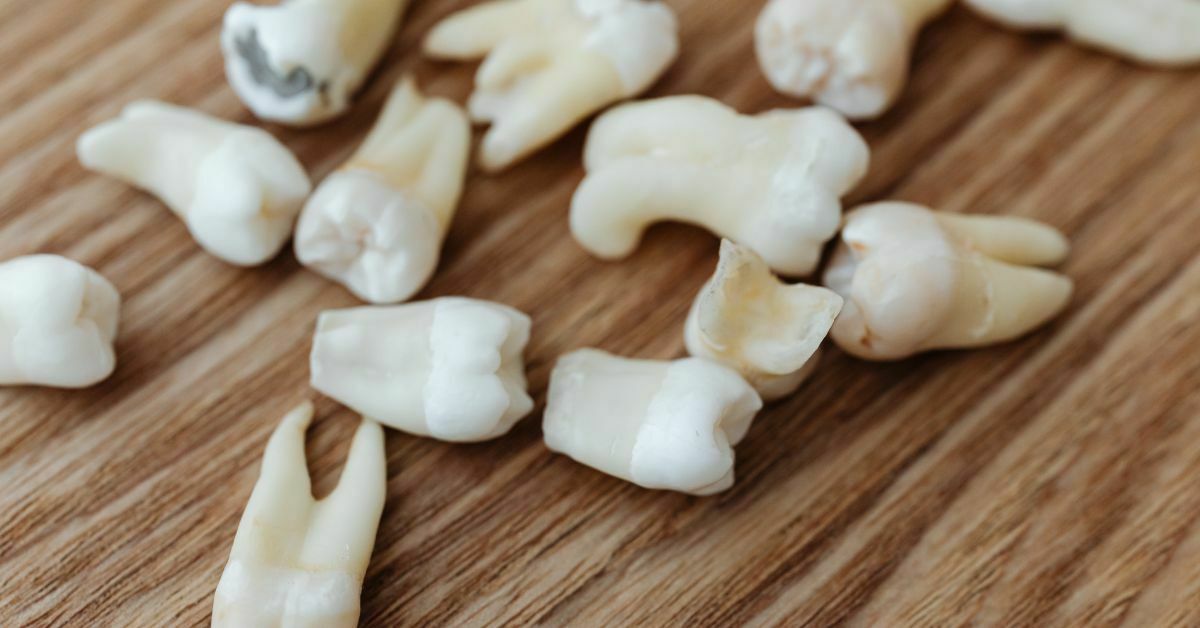Can Wisdom Teeth Grow Back? A Medically Accurate Guide
Wisdom teeth, also known as third molars, are the last to erupt in the mouth. They usually appear between 17 and 25, although some people…
Wisdom teeth, also known as third molars, are the last to erupt in the mouth. They usually appear between 17 and 25, although some people may get them earlier or later. Wisdom teeth are notorious for causing problems such as pain, infection, and crowding. Many people wonder if wisdom teeth can grow back once they are removed. This article will explore the answer to this question and provide medically accurate information about wisdom teeth.
Table of Contents
What are Wisdom Teeth?
Wisdom teeth are the third set of molars growing at the mouth’s back. Most people have four wisdom teeth, but some may have more or less. These teeth are vestigial organs, meaning they are evolutionary remnants that no longer serve a purpose in the human body. Our ancient ancestors needed these teeth to help them chew tough and fibrous food, but with the evolution of our diets, we no longer need them.

Why Do Wisdom Teeth Cause Problems?
Wisdom teeth can cause problems because they often don’t have enough room to grow correctly. When impacted or partially erupted, they can cause pain, swelling, and infection. They can also damage adjacent teeth or cause crowding, leading to bite misalignment. Sometimes, wisdom teeth may grow at an angle, pressing against nerves or other vital structures in the mouth.
Can Wisdom Teeth Grow Back?
The short answer to this question is no; wisdom teeth cannot grow back once removed. Once a tooth is extracted, the tooth root is removed from the jawbone, and the empty socket is filled with bone tissue. The bone tissue then heals and closes the socket, preventing any new teeth from growing in their place. Therefore, if you remove your wisdom teeth, you can rest assured that they won’t grow back.
When Should You Get Your Wisdom Teeth Removed?
Not all wisdom teeth need to be removed. Some people have enough space in their mouths for their wisdom teeth to grow normally without causing any problems. However, if your wisdom teeth are impacted, partially erupted, or causing pain, infection, or crowding, your dentist or oral surgeon may recommend that you have them removed.
The best time to remove your wisdom teeth is between the ages of 16 and 22. At this age, the roots of the wisdom teeth are not fully developed, and the bone surrounding them is still relatively soft, making the extraction process more accessible and less painful. If you wait until later in life to remove your wisdom teeth, the extraction may be more complex and require a more extended recovery period.

What Happens During Wisdom Teeth Extraction?
Wisdom teeth extraction is a standard dental procedure usually done under local anesthesia. If you are nervous or anxious about the process, your dentist or oral surgeon may also offer sedation to help you relax. During the procedure, the dentist or oral surgeon will make a small incision in your gum tissue to expose the tooth and bone. They will then remove any bone blocking the tooth and use forceps to gently rock it back and forth until it comes out of the socket.
After removing the tooth, the dentist or oral surgeon cleans the socket and stitches the gum tissue together. They will then place a piece of gauze over the extraction site to help control bleeding and promote clotting. You will be given instructions on caring for the extraction site and what to expect during recovery.
What Can You Expect During the Recovery Period?
The recovery period after wisdom teeth extraction varies depending on the complexity of the extraction and your healing process. Most people experience some pain, swelling, and bleeding for the first few days after
The recovery period after wisdom teeth extraction varies depending on the complexity of the extraction and your healing process. Most people experience pain, swelling, and bleeding for the first few days after the procedure. You may also have difficulty opening your mouth or eating certain foods.
To help manage the pain and swelling, your dentist or oral surgeon may prescribe pain medication and recommend applying an ice pack to the affected area. It would help if you also avoided smoking, using a straw, or doing anything that could dislodge the blood clot that forms in the socket, as this can delay healing and lead to a painful condition called a dry socket.
Most people can return to normal activities within a week to 10 days after wisdom teeth extraction. However, it may take several weeks for the gum tissue to heal completely, and you should avoid eating hard, crunchy, or spicy foods until you are fully healed.
Conclusion
In summary, wisdom teeth are the third molars that grow at the back of the mouth. They can cause problems if impacted, partially erupted, or cause pain, infection, or crowding. If your dentist or oral surgeon recommends that you have your wisdom teeth removed, it is important to follow their instructions carefully to ensure a smooth and successful recovery.
While wisdom teeth cannot grow back once they are removed, it is still vital to maintain good oral hygiene to prevent other dental problems from arising. This includes brushing your teeth twice daily, flossing daily, and visiting your dentist for regular check-ups and cleanings.

Related Article: How to Prevent and Treat Tooth Decay at the Gum Line?
References:
- American Dental Association. Wisdom Teeth. Accessed 13 March 2023. https://www.mouthhealthy.org/en/az-topics/w/wisdom-teeth.
- Mayo Clinic. Wisdom Teeth Removal: What You Need to Know. Accessed 13 March 2023. https://www.mayoclinic.org/tests-procedures/wisdom-tooth-extraction/about/pac-20395268.
- National Institute of Dental and Craniofacial Research. Wisdom Teeth. Accessed 13 March 2023. https://www.cc.nih.gov/recruit/protocols/13_third-molar.html


